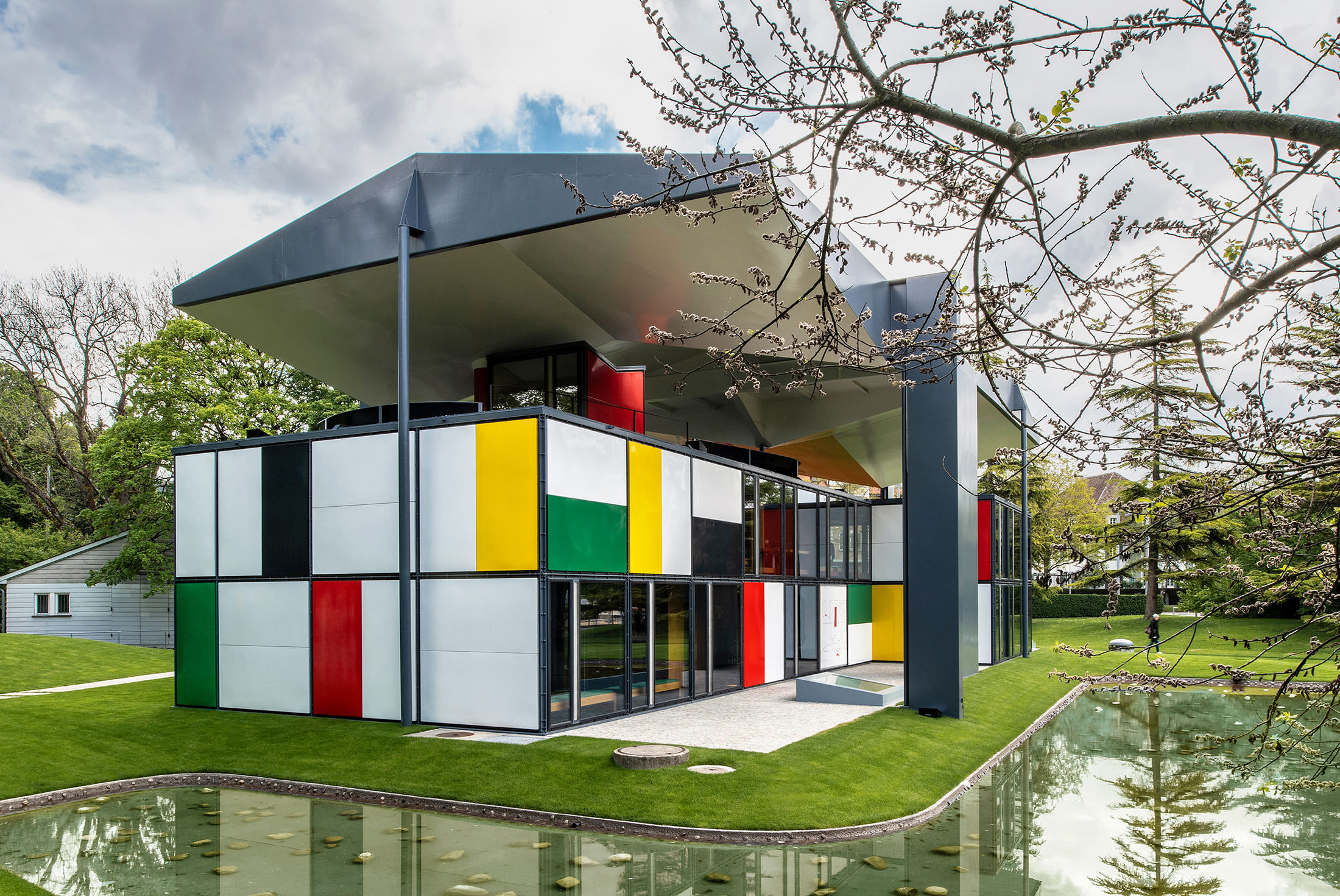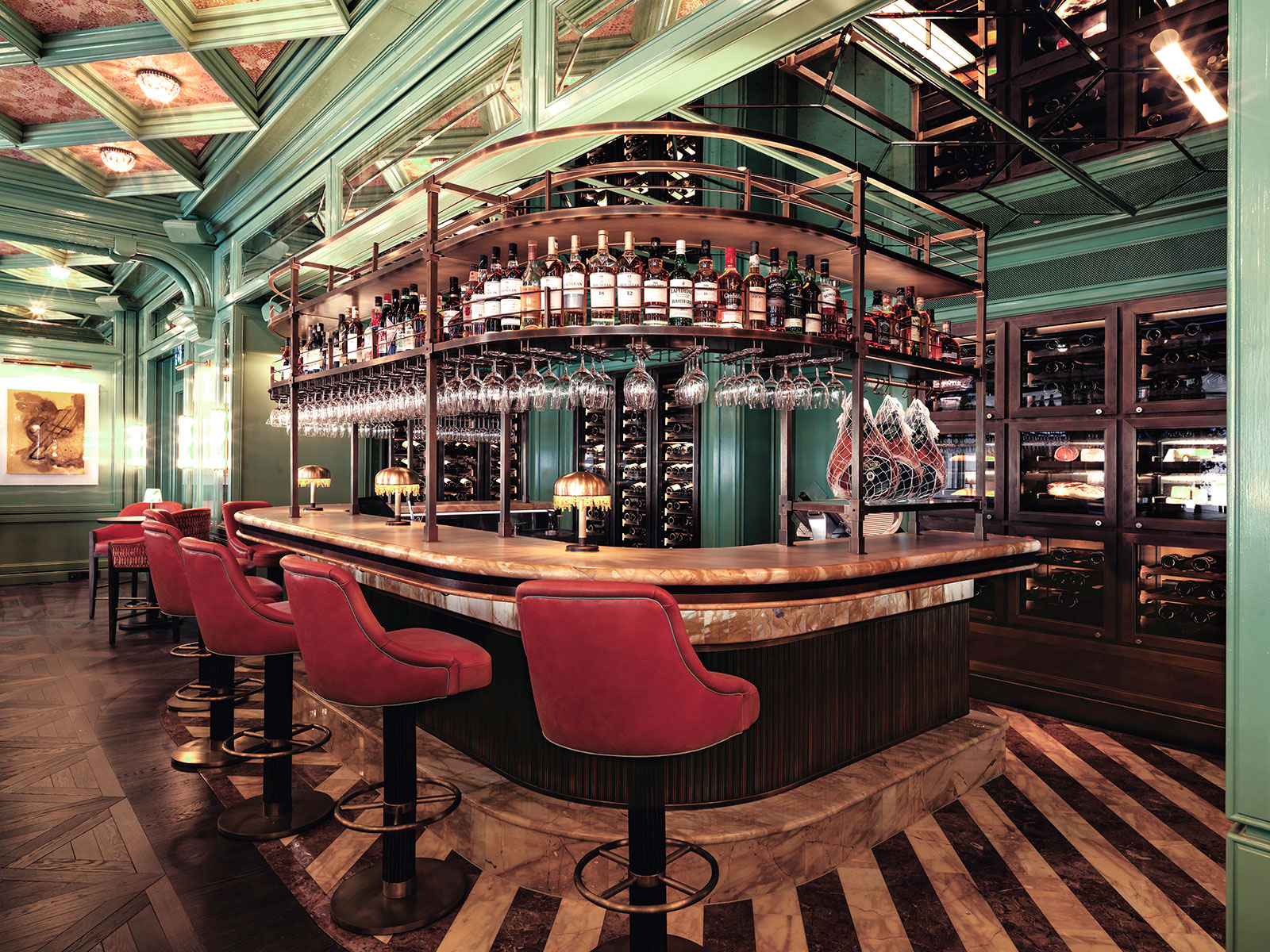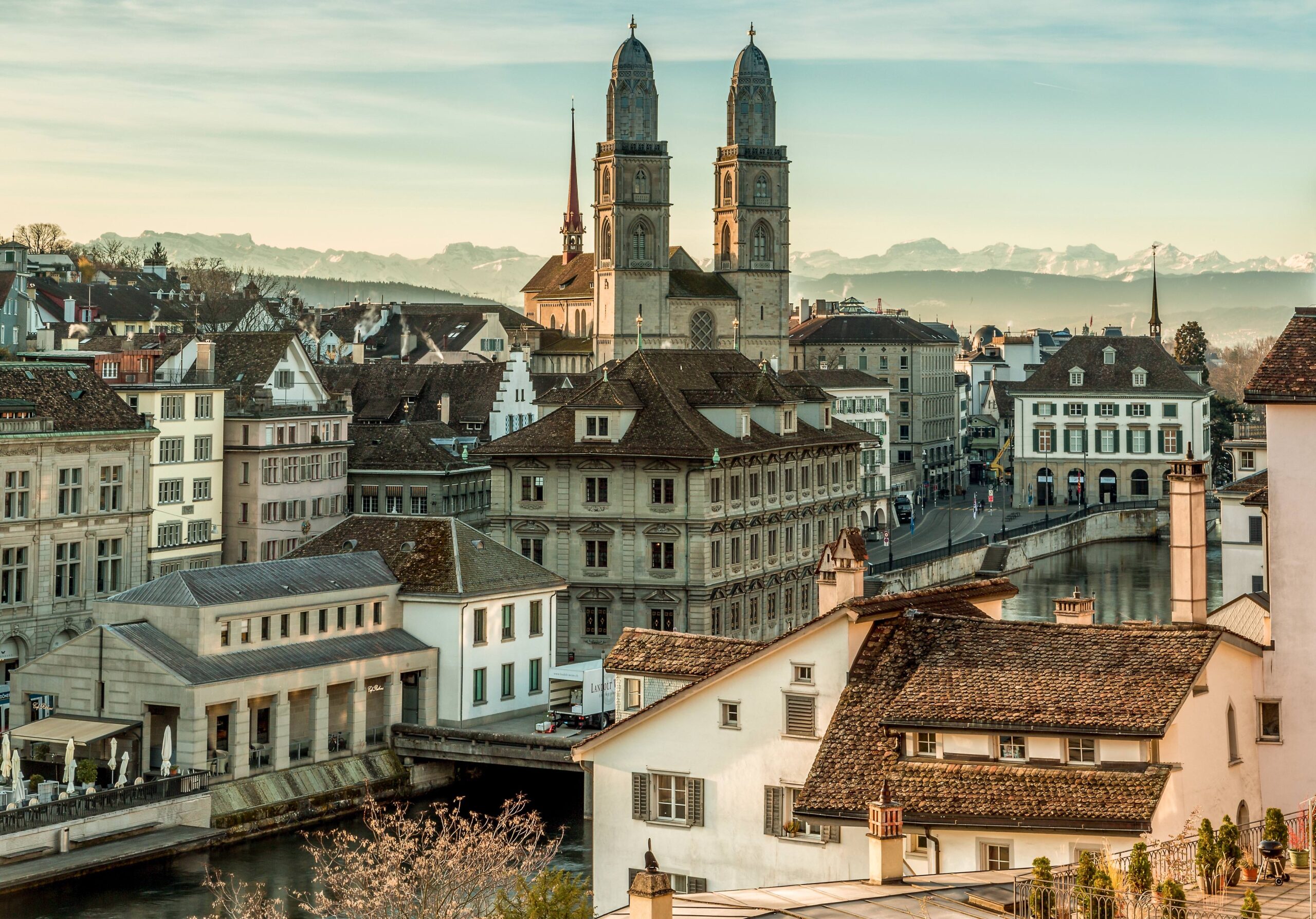Collections of a Modernist Master at the Pavillon Le Corbusier in Zurich
Art form.
Art form.
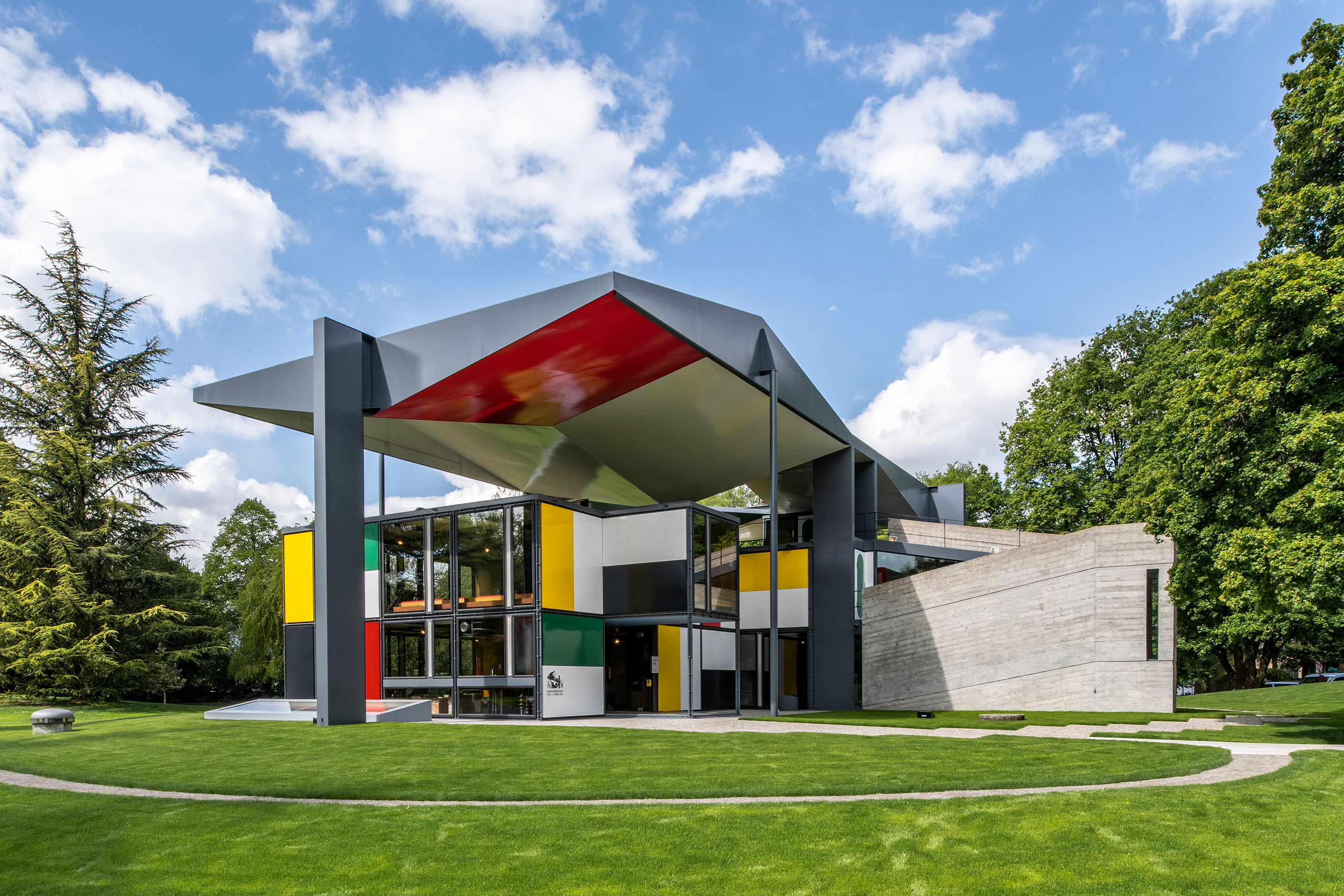
Mon univers, Ausstellung des Museum für Gestalting Zürich
“Space and light and order. Those are the things that men need just as much as they need bread or a place to sleep.” The famous words of Le Corbusier, one of the founding fathers of modernism, echo his place in the pages of architectural history.
The Swiss-French architect born Charles-Édouard Jeanneret was a master of creating not only beautiful spaces—perhaps most famously the Villa Savoye near Paris, a UNESCO World Heritage Site—but furniture, paintings, and sculptures. The largely self-taught polymath passed away in 1965; Pavillon Le Corbusier, his final architectural project, was fully realized two years after his death.
This May, the distinctive building with a Mondrian-style colour-blocked exterior and bold glass-and-steel construction reopened to the public on the shores of Lake Zurich following a complete renovation. The current exhibition, Mon univers, on view until November 17, is a tribute to Le Corbusier that centres around his passion for collecting. It showcases personal objects and assemblages that inspired him—including industrial glass, Balkan ceramics, and conch shells—accompanied by his paintings and historical photographs, including a special series of 17 prints taken by René Burri.
The pavilion itself is, of course, the pièce de résistance. Its design is based upon Le Corbusier’s system of proportions, within which he wove other favourite architectural elements, such as a small rooftop garden and an intentional promenade architecturale—an “itinerary” of the built environment that guides visitors along a planned pathway through the building.
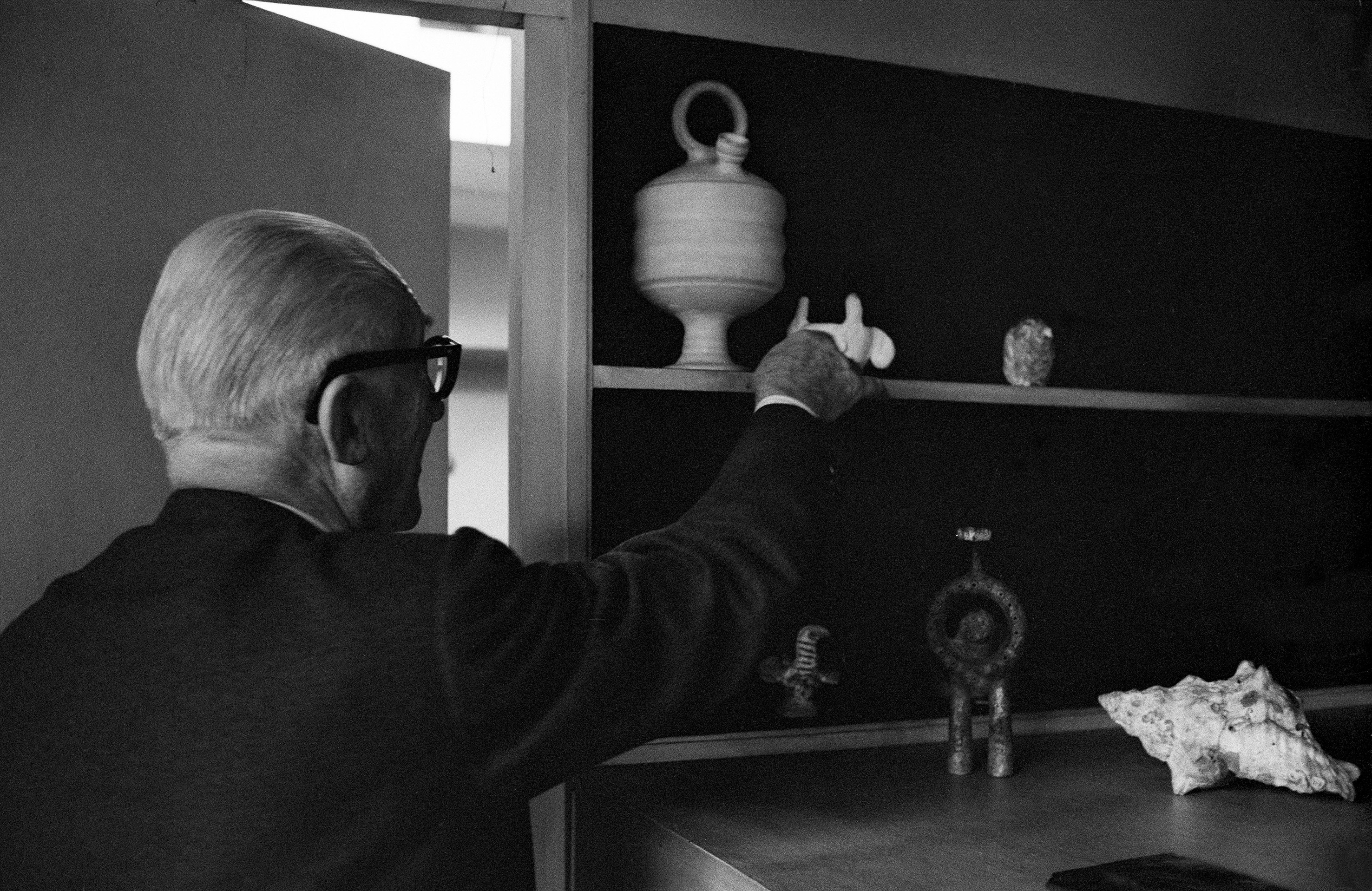
Le Corbusier with his “collection particulière” in his apartment/studio, Paris, photo: René Burri, 1959, Museum für Gestaltung Zürich, Graphics Collection, © Magnum Photos
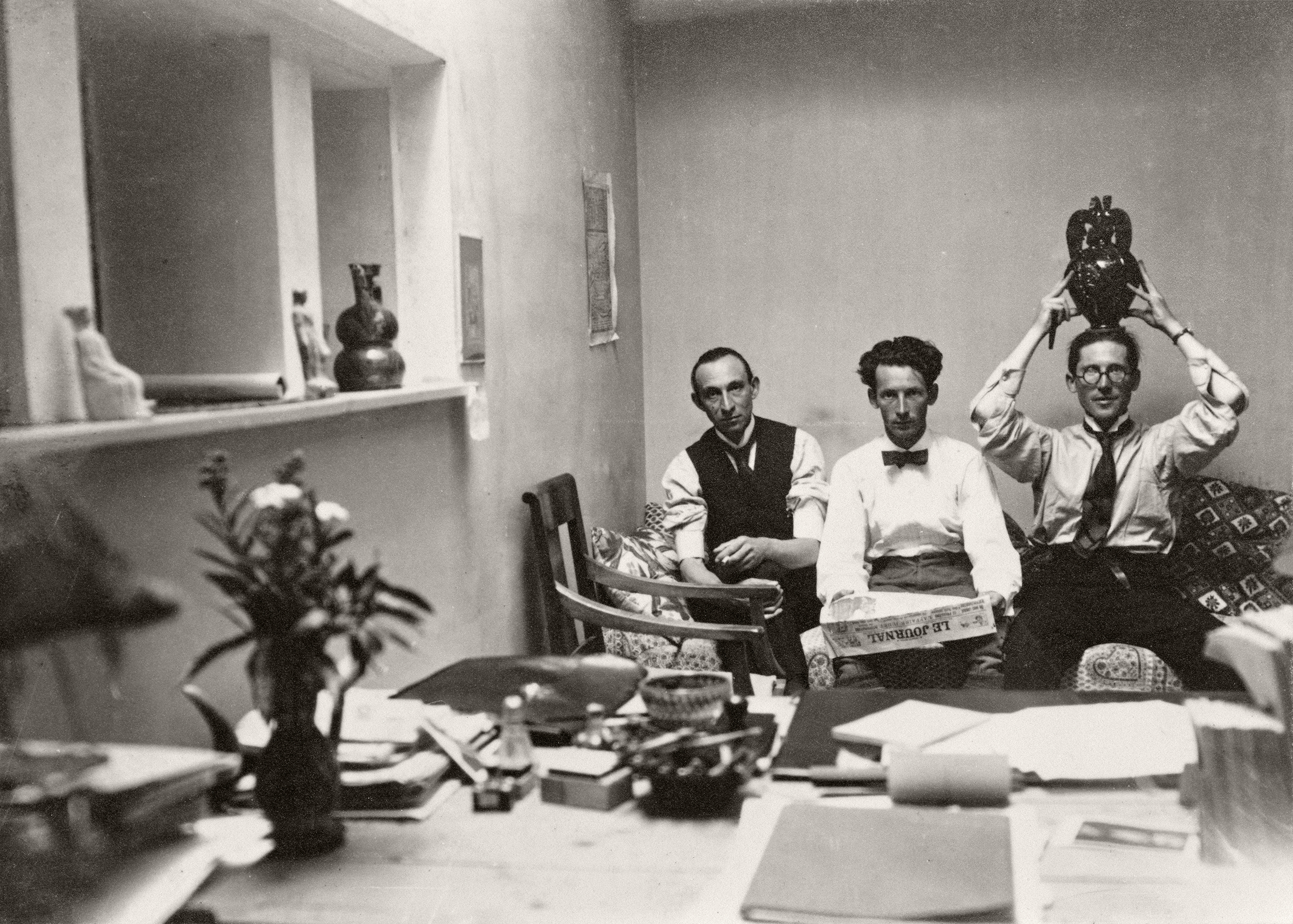
Le Corbusier with Serbian vase on his head, with Albert Jeanneret and Amédé Ozenfant at the Maison Blanche, La Chaux-de-Fonds, August 1919, © Fondation Le Corbusier, Paris
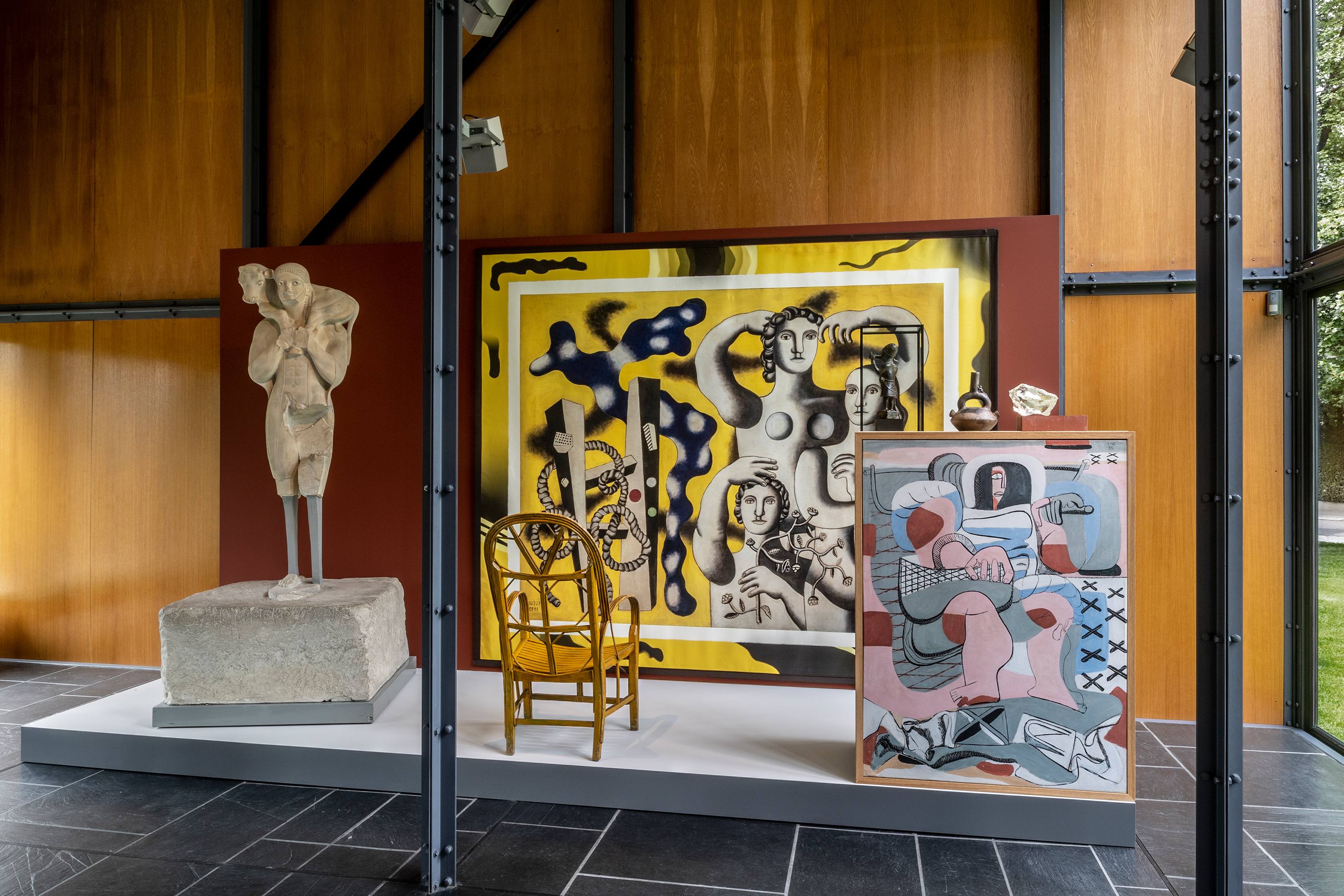
Exhibition Mon univers, 1st floor Pavillon Le Corbusier, 2019, Zurich, © ZHdK
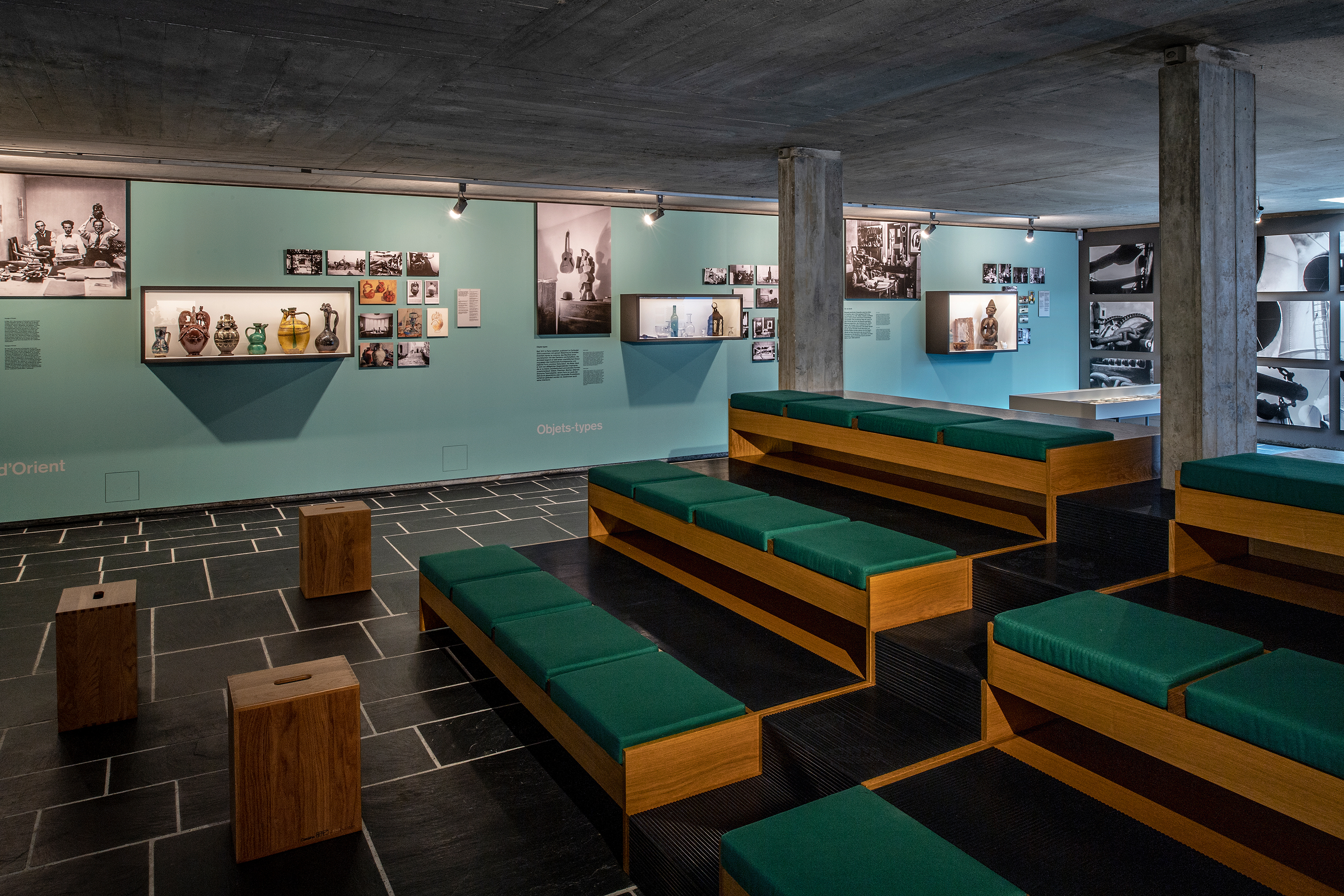
Exhibition Mon univers, Basement floor Pavillon Le Corbusier, 2019, Zurich, © ZHdK
_________
Never miss a story. Sign up for NUVO’s weekly newsletter here.

